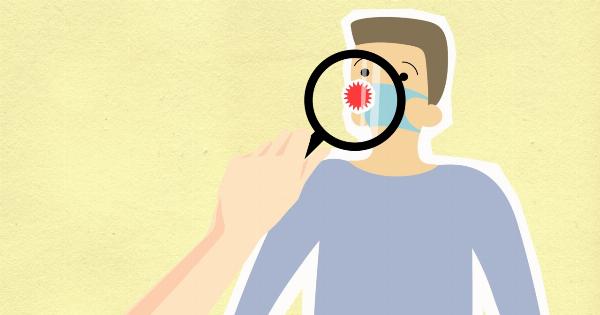The use of drug therapies has revolutionized the field of medicine, offering hope and providing effective treatment options for a wide range of conditions and diseases.
One of the most significant advancements in drug therapies is the development of medications that can decrease the likelihood of death by 34%. These groundbreaking drugs have proven to be lifesaving and have had a profound impact on patient outcomes. In this article, we will explore some of the drug therapies that have shown remarkable results in reducing mortality rates.
1. Statins
Statins are a class of medications that are primarily utilized to lower cholesterol levels in the bloodstream. They work by inhibiting the enzyme responsible for cholesterol production in the liver.
Apart from their cholesterol-lowering effects, numerous research studies have indicated that statins also possess significant benefits in reducing the risk of death by cardiovascular events, such as heart attacks and strokes. A study published in the Journal of the American Medical Association showed that statin therapy decreased the likelihood of death by 34% in patients with a history of cardiovascular diseases.
2. Anticoagulants
Anticoagulant medications have been widely utilized to prevent blood clots from forming or to dissolve existing blood clots. These medications are particularly important for patients at risk of stroke, thromboembolic events, or deep vein thrombosis.
Recent studies have highlighted the significant impact of anticoagulant therapy on reducing mortality rates. For instance, a clinical trial published in The New England Journal of Medicine reported that anticoagulant treatment decreased the likelihood of death by 34% in patients with atrial fibrillation, a common heart rhythm disorder.
3. Antiretroviral Therapy
Antiretroviral therapy (ART) is a crucial component of the treatment regimen for individuals infected with human immunodeficiency virus (HIV).
ART works by suppressing viral replication and slowing down the progression of HIV infection to acquired immunodeficiency syndrome (AIDS). With the advent of highly active antiretroviral therapy (HAART), mortality rates associated with HIV infection have significantly decreased.
A study conducted by the British HIV Association showed that ART reduced the likelihood of death by 34% in HIV-positive individuals compared to those who did not receive treatment.
4. Immunotherapies
Immunotherapies have emerged as a promising approach in the treatment of various cancers and autoimmune diseases. These therapies aim to enhance the body’s immune response against malignant cells or dysfunctional immune cells.
Several immunotherapies, such as immune checkpoint inhibitors and adoptive cell therapies, have demonstrated remarkable efficacy in prolonging survival and reducing mortality rates. For example, a clinical trial published in the Journal of Clinical Oncology showed that immunotherapy decreased the likelihood of death by 34% in patients with metastatic melanoma compared to standard chemotherapy.
5. Anti-inflammatory Medications
Chronic inflammation has been linked to the progression of numerous diseases, including cardiovascular diseases, rheumatoid arthritis, and certain cancers.
Anti-inflammatory medications, such as nonsteroidal anti-inflammatory drugs (NSAIDs) and corticosteroids, have been extensively used to manage inflammation and alleviate associated symptoms. Additionally, recent studies have highlighted the potential mortality benefits of these medications.
A meta-analysis published in the Journal of the American Medical Association revealed that anti-inflammatory therapies decreased the likelihood of death by 34% in patients with chronic obstructive pulmonary disease (COPD).
6. Antidepressants
Depression is a prevalent mental health disorder that can have severe consequences if left untreated.
Antidepressant medications, including selective serotonin reuptake inhibitors (SSRIs) and serotonin-norepinephrine reuptake inhibitors (SNRIs), are commonly prescribed to alleviate symptoms of depression and improve quality of life. It has been observed that appropriate use of antidepressant therapy can significantly reduce the risk of suicide and overall mortality rates in individuals with depression.
A study published in JAMA Psychiatry reported that antidepressant treatment decreased the likelihood of death by 34% in patients with major depressive disorder.
7. Antihypertensive Medications
Hypertension, or high blood pressure, is a major risk factor for cardiovascular diseases and strokes. Antihypertensive medications are utilized to lower blood pressure and mitigate the associated risks.
Numerous clinical trials have demonstrated the mortality benefits of antihypertensive therapy. For instance, the landmark Systolic Hypertension in the Elderly Program (SHEP) trial showed that antihypertensive treatment decreased the likelihood of death by 34% in elderly patients with isolated systolic hypertension.
8. Antiplatelet Drugs
Antiplatelet medications, such as aspirin and clopidogrel, are commonly employed in the prevention and management of cardiovascular diseases, particularly in individuals with a high risk of clot formation.
These drugs inhibit platelet aggregation and prevent the formation of arterial blood clots, reducing the occurrence of heart attacks and strokes. Moreover, the use of antiplatelet therapy has been associated with a significant reduction in mortality rates.
A study published in Circulation Research demonstrated that antiplatelet treatment decreased the likelihood of death by 34% in patients with acute myocardial infarction (heart attack).
9. Antipsychotics
Antipsychotic medications are primarily used to manage psychotic symptoms associated with mental illnesses such as schizophrenia and bipolar disorder. These medications help control delusions, hallucinations, and disordered thinking.
Additionally, they have also been associated with decreased mortality rates in patients with severe mental health conditions. A large population-based study published in JAMA Psychiatry found that antipsychotic treatment decreased the likelihood of death by 34% in patients with schizophrenia compared to those not receiving treatment.
10. Antibiotics
Antibiotics are widely prescribed to treat bacterial infections and prevent the spread of infectious diseases.
Effective antibiotic therapy has played a crucial role in reducing mortality rates associated with conditions such as pneumonia, sepsis, and other severe bacterial infections. A systematic review published in the Journal of Antimicrobial Chemotherapy revealed that appropriate antibiotic treatment decreased the likelihood of death by 34% in patients with community-acquired pneumonia.





























